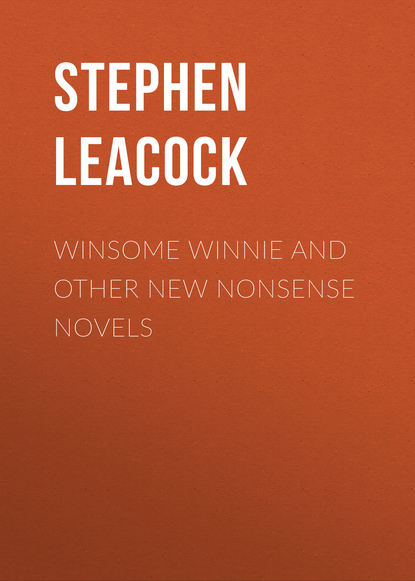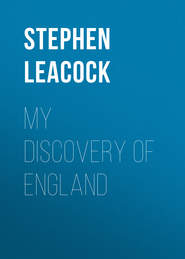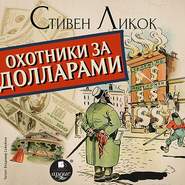По всем вопросам обращайтесь на: info@litportal.ru
(©) 2003-2025.
✖
Winsome Winnie and other New Nonsense Novels
Автор
Год написания книги
2019
Настройки чтения
Размер шрифта
Высота строк
Поля
Well, it was just at that moment that one of those strange coincidences happen, little things in themselves, but which seem to alter the whole course of a person's life. I had nearly finished the letter to John that I was to leave on the writing-desk, when just then the maid came up to my room with a telegram. It was for John, but I thought it my duty to open it and read it for him before I left. And I nearly fainted when I saw that it was from a lawyer in Bermuda—of all places—and it said that a legacy of two hundred thousand dollars had been left to John by an uncle of his who had died there, and asking for instructions about the disposition of it.
A great wave seemed to sweep over me, and all the wicked thoughts that had been in my mind—for I saw now that they were wicked—were driven clean away. I thought how completely lost poor old John would feel if all this money came to him and he didn't have to work any more and had no one at his side to help and guide him in using it.
I tore up the wicked letter I had written, and I hurried as fast as I could to pack up a valise with John's things (my own were packed already, as I said). Then presently John came in, and I broke the news to him as gently and as tenderly as I could about his uncle having left him the money and having died. I told him that I had found out all about the trains and the Bermuda steamer, and had everything all packed and ready for us to leave at once. John seemed a little dazed about it all, and kept saying that his uncle had taught him to play tennis when he was a little boy, and he was very grateful and thankful to me for having everything arranged, and thought it wonderful.
I had time to telephone to a few of my women friends, and they just managed to rush round for a few minutes to say good-bye. I couldn't help crying a little when I told them about John's uncle dying so far away with none of us near him, and I told them about the legacy, and they cried a little to hear of it all; and when I told them that John and I might not come back direct from Bermuda, but might take a run over to Europe first, they all cried some more.
We left for New York that evening, and after we had been to Bermuda and arranged about a suitable monument for John's uncle and collected the money, we sailed for Europe.
All through the happy time that has followed, I like to think that through all our trials and difficulties affliction brought us safely together at last.
III
THE SPLIT IN THE CABINET OR, THE FATE OF ENGLAND
(A political novel of the Days that Were)
CHAPTER I
"The fate of England hangs upon it," murmured Sir John Elphinspoon, as he sank wearily into an armchair. For a moment, as he said "England," the baronet's eye glistened and his ears lifted as if in defiance, but as soon as he stopped saying it his eye lost its brilliance and his ears dropped wearily at the sides of his head.
Lady Elphinspoon looked at her husband anxiously. She could not conceal from herself that his face, as he sank into his chair, seemed somehow ten years older than it had been ten years ago.
"You are home early, John?" she queried.
"The House rose early, my dear," said the baronet.
"For the All England Ping-Pong match?"
"No, for the Dog Show. The Prime Minister felt that the Cabinet ought to attend. He said that their presence there would help to bind the colonies to us. I understand also that he has a pup in the show himself. He took the Cabinet with him."
"And why not you?" asked Lady Elphinspoon.
"You forget, my dear," said the baronet, "as Foreign Secretary my presence at a Dog Show might be offensive to the Shah of Persia. Had it been a Cat Show–"
The baronet paused and shook his head in deep gloom.
"John," said his wife, "I feel that there is something more. Did anything happen at the House?"
Sir John nodded.
"A bad business," he said. "The Wazuchistan Boundary Bill was read this afternoon for the third time."
No woman in England, so it was generally said, had a keener political insight than Lady Elphinspoon.
"The third time," she repeated thoughtfully, "and how many more will it have to go?"
Sir John turned his head aside and groaned.
"You are faint," exclaimed Lady Elphinspoon, "let me ring for tea."
The baronet shook his head.
"An egg, John—let me beat you up an egg."
"Yes, yes," murmured Sir John, still abstracted, "beat it, yes, do beat it."
Lady Elphinspoon, in spite of her elevated position as the wife of the Foreign Secretary of Great Britain, held it not beneath her to perform for her husband the plainest household service. She rang for an egg. The butler broke it for her into a tall goblet filled with old sherry, and the noble lady, with her own hands, beat the stuff out of it. For the veteran politician, whose official duties rarely allowed him to eat, an egg was a sovereign remedy. Taken either in a goblet of sherry or in a mug of rum, or in half a pint of whisky, it never failed to revive his energies.
The effect of the egg was at once visible in the brightening of his eye and the lengthening of his ears.
"And now explain to me," said his wife, "what has happened. What is this Boundary Bill?"
"We never meant it to pass," said Sir John. "It was introduced only as a sop to public opinion. It delimits our frontier in such a way as to extend our suzerainty over the entire desert of El Skrub. The Wazoos have claimed that this is their desert. The hill tribes are restless. If we attempt to advance the Wazoos will rise. If we retire it deals a blow at our prestige."
Lady Elphinspoon shuddered. Her long political training had taught her that nothing was so fatal to England as to be hit in the prestige.
"And on the other hand," continued Sir John, "if we move sideways, the Ohulîs, the mortal enemies of the Wazoos, will strike us in our rear."
"In our rear!" exclaimed Lady Elphinspoon in a tone of pain. "Oh, John, we must go forward. Take another egg."
"We cannot," groaned the Foreign Secretary. "There are reasons which I cannot explain even to you, Caroline, reasons of State, which absolutely prevent us from advancing into Wazuchistan. Our hands are tied. Meantime if the Wazoos rise, it is all over with us. It will split the Cabinet."
"Split the Cabinet!" repeated Lady Elphinspoon in alarm. She well knew that next to a blow in the prestige the splitting of the Cabinet was about the worst thing that could happen to Great Britain. "Oh, John, they must be held together at all costs. Can nothing be done?"
"Everything is being done that can be. The Prime Minister has them at the Dog Show at this moment. To-night the Chancellor is taking them to moving pictures. And to-morrow—it is a State secret, my dear, but it will be very generally known in the morning—we have seats for them all at the circus. If we can hold them together all is well, but if they split we are undone. Meantime our difficulties increase. At the very passage of the Bill itself a question was asked by one of the new labour members, a miner, my dear, a quite uneducated man–"
"Yes?" queried Lady Elphinspoon.
"He asked the Colonial Secretary"—Sir John shuddered—"to tell him where Wazuchistan is. Worse than that, my dear," added Sir John, "he defied him to tell him where it is."
"What did you do? Surely he has no right to information of that sort?"
"It was a close shave. Luckily the Whips saved us. They got the Secretary out of the House and rushed him to the British Museum. When he got back he said that he would answer the question a month from Friday. We got a great burst of cheers, but it was a close thing. But stop, I must speak at once with Powers. My despatch box, yes, here it is. Now where is young Powers? There is work for him to do at once."
"Mr. Powers is in the conservatory with Angela," said Lady Elphinspoon.
"With Angela!" exclaimed Sir John, while a slight shade of displeasure appeared upon his brow. "With Angela again! Do you think it quite proper, my dear, that Powers should be so constantly with Angela?"
"John," said his wife, "you forget, I think, who Mr. Powers is. I am sure that Angela knows too well what is due to her rank, and to herself, to consider Mr. Powers anything more than an instructive companion. And I notice that, since Mr. Powers has been your secretary, Angela's mind is much keener. Already the girl has a wonderful grasp on foreign policy. Only yesterday I heard her asking the Prime Minister at luncheon whether we intend to extend our Senegambian protectorate over the Fusees. He was delighted."
"Oh, very well, very well," said Sir John. Then he rang a bell for a manservant.
"Ask Mr. Powers," he said, "to be good enough to attend me in the library."
CHAPTER II
Angela Elphinspoon stood with Perriton Powers among the begonias of the conservatory. The same news which had so agitated Sir John lay heavy on both their hearts.














